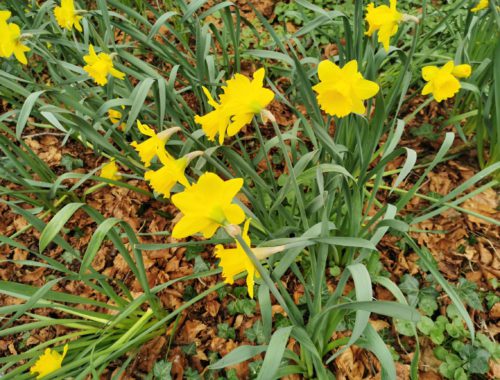Idols and Inspiration
I’m listening to a Masterclass hosted by Judy Blume. I’d forgotten, until now, how much I enjoyed her books when I was a child. I devoured them. I don’t think I owned very many of the books, but I borrowed them time and time again from the local library. How I miss my childhood library. Funnily enough, my sister only mentioned that library the other day, so my memory was already on a trip down that path before I started to listen to Judy Blume.
We’d spend hours in the library. It was maybe about a half hour walk from our house; maybe ten minutes on our bikes… not far, anyway. When we walked or biked, we could go across a park to get there, and the pedestrian entrance to the vast stretch of green was through a kissing gate. If we had our bikes, we’d hoik them over the wall, or go the longer way around, in through the car park instead. If we walked, we’d take the dog, and she’d run forever back and forth across what I remember as a huge space, but was probably average football pitch size, with a strip of play equipment at the far side, nearest to the library building. The play equipment is long gone and the lovely old memories of an over-concrete climbing frame, a teetering Witch’s Hat, the old wooden rocking horse, the American swing have all been replaced with ‘Safe’, ‘Modern’, and, dare I say it – ‘Boring’. The car park was divided from the grass by a fenced and concreted tennis court. I won’t pretend I was any good at tennis, but we did sometimes try to knock a few balls about on that court.


The library was a low, single story building, and I’m old enough to remember little cardboard tickets and what must now seem like an archaic filing system. Those little cards were our tickets to the world. We’d spend ages selecting a pile of books, stagger to the desk, and the librarian would meticulously fill in the details on each little card and stamp the inside fo the book with its return date. I miss that. I long for a less computerised world, although I suspect a current day librarian may find it easier now.

Among my memories are piles of Judy Blume books – It’s not the end of the World; Deenie; Tales of a Fourth Grade Nothing; Forever, many, many more … And as I listen to her on this Masterclass, I remember exactly why her books were so important: They talked about the very real experiences of being a child on the cusp of teenage years, that so many other books did not talk about. No one in my massive stash of Enid Blyton books had periods. No one in my beloved Malcolm Saville books had divorcing parents (absent, yes, but not arguing, emotional wrecks of parents in the throes of splitting up). Sure, some of these other books touched on subjects like bullying, but not in the raw, real way that Judy Blume tackled these subjects. In most of my other books, the difficult ‘growing up’ subjects were brushed aside, glossed over, or unmentioned, and all the problems that did arise were solved with lashing of ginger beer or a day on a secluded island, often while hiding in a gorse bush. (And there was nothing worng with that – I loved those book too.)
But Judy Blume talked to her readers about the Real.
As I listen to her speak, I realise just how much she has influenced the way I wrote Dear Isobel. Dear Isobel is a book that doesn’t just skim the surface of a difficult subject and then disguise it or excuse it or turn into a Jolly Adventure. It gives the Real. It takes a subject that is little talked about and opens it wide for discussion. It brings a taboo subject out into the open. It talks about an experience that many real people really do have in their very real lives. When Judy Blume took a large helping of ‘We don’t talk about those things’, and started to talk about them, she helped children and adults everywhere. She gave facts, she opened dialogues, and she let children and young adults see that just becasue we don’t talk about something, that doesn’t mean it doesn’t happen. She taught (and still teaches) us that we are normal. If Dear Isobel can touch even one person in the way Judy Blume has touched the hearts of her readers, I will be an extremely happy author.
So, thank you, wonderful Judy Blume, not only for your influence and help during those tricky years of puberty, but also for the writing and the inspiration and the examples.
Which authors influenced you, and why?
Please do comment to share the love for our favourite authors, particularly our childhood favourites.
I long to hear from you,
Love, Jinny
For those interested in reading more about Judy Blume, this is her website.
This link is to her Masterclass (paid content, although you may be able to access it as a trial, like I have).
You tube debut
Only this
You May Also Like
